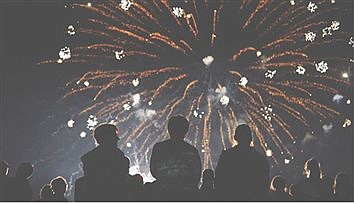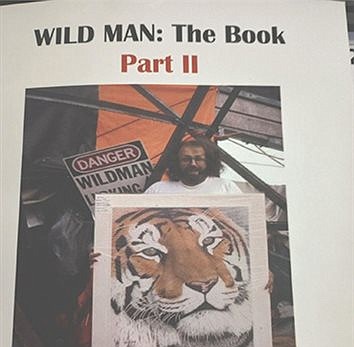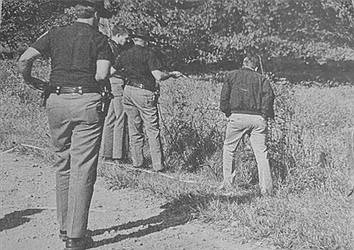It’s fishing season at Brookville Lake
April 12, 2023 at 6:55 p.m.

The fishing season at Brookville Lake generally begins around this time of year, depending on the weather conditions. This is the time when the water temperature starts to rise, and the fish become more active, making it a great time for anglers to start casting their lines. If you're familiar with the area, you know that many consider Brookville Lake a fisherman's paradise. But if you're new to the idea, here's a quick update: Brookville Lake is stocked with walleye, striped bass, musky, white bass, crappie, large and small mouth bass, as well as bluegill and catfish. The lake is 17 miles in length and covers 5,260 acres, offering ample water for fishing, boating, swimming and water sports. And with plenty of camping and lodging options, you can bring the whole gang along with you. All you need is a fishing license and a little research to get started.
It's important to note while fishing season is open year-round, certain restrictions and regulations are in place for different species of fish. For example, largemouth bass fishing is catch-and-release only from April 1st to the Friday before Memorial Day weekend. Other species such as walleye and catfish have specific size and creel limits.
The Farmer's Almanac offers many old tips and tricks that fishermen and women have sworn by for generations. One old standby says that the best times to fish are when the fish are naturally most active, which is influenced by the sun, moon, tides, and weather. For example, fish tend to feed more at sunrise and sunset and during a full moon (when tides are higher than average).Their calendar of “the best days to fish” continues to be accurate, many say, although technology has made following the fish a bit easier. The website Fishbrain.com, for example, offers up-to-date assessments of what's biting, where to find them, and a host of other information. A drop-down menu on their site offers varied options of fish such as “Bass, Small-Mouth” or “Trout, Rainbow.” Upon clicking the selection, you'll be shown specific fishing regulations for the area, along with seasonal data and tips from other local anglers. You can even access a 2023-24 Fishing Guide online at https://www.in.gov/dnr/fish-and-wildlife/fishing/. In this document you will find all you need to know about local fisheries, and you can apply for a fishing license here.
For those less tech-savvy (or those who just believe in leaving the technology out of fishing, for crying out loud, as one local fisherman noted) there are human guides you can hire to help walk you through the experience, and a call to your local DNR branch can usually set you on the right track. Or check out Free Fishing Days, an excellent opportunity to learn how to fish, take your family fishing, or introduce a friend to fishing. Indiana's four Free Fishing Days are May 7, June 3-4, and Sept. 23, 2023. On these days Indiana residents do not need a fishing license or a trout/salmon stamp to fish the state's public waters. All other rules such as seasons, bag, and size limits apply.
Latest News
E-Editions
Events
The fishing season at Brookville Lake generally begins around this time of year, depending on the weather conditions. This is the time when the water temperature starts to rise, and the fish become more active, making it a great time for anglers to start casting their lines. If you're familiar with the area, you know that many consider Brookville Lake a fisherman's paradise. But if you're new to the idea, here's a quick update: Brookville Lake is stocked with walleye, striped bass, musky, white bass, crappie, large and small mouth bass, as well as bluegill and catfish. The lake is 17 miles in length and covers 5,260 acres, offering ample water for fishing, boating, swimming and water sports. And with plenty of camping and lodging options, you can bring the whole gang along with you. All you need is a fishing license and a little research to get started.
It's important to note while fishing season is open year-round, certain restrictions and regulations are in place for different species of fish. For example, largemouth bass fishing is catch-and-release only from April 1st to the Friday before Memorial Day weekend. Other species such as walleye and catfish have specific size and creel limits.
The Farmer's Almanac offers many old tips and tricks that fishermen and women have sworn by for generations. One old standby says that the best times to fish are when the fish are naturally most active, which is influenced by the sun, moon, tides, and weather. For example, fish tend to feed more at sunrise and sunset and during a full moon (when tides are higher than average).Their calendar of “the best days to fish” continues to be accurate, many say, although technology has made following the fish a bit easier. The website Fishbrain.com, for example, offers up-to-date assessments of what's biting, where to find them, and a host of other information. A drop-down menu on their site offers varied options of fish such as “Bass, Small-Mouth” or “Trout, Rainbow.” Upon clicking the selection, you'll be shown specific fishing regulations for the area, along with seasonal data and tips from other local anglers. You can even access a 2023-24 Fishing Guide online at https://www.in.gov/dnr/fish-and-wildlife/fishing/. In this document you will find all you need to know about local fisheries, and you can apply for a fishing license here.
For those less tech-savvy (or those who just believe in leaving the technology out of fishing, for crying out loud, as one local fisherman noted) there are human guides you can hire to help walk you through the experience, and a call to your local DNR branch can usually set you on the right track. Or check out Free Fishing Days, an excellent opportunity to learn how to fish, take your family fishing, or introduce a friend to fishing. Indiana's four Free Fishing Days are May 7, June 3-4, and Sept. 23, 2023. On these days Indiana residents do not need a fishing license or a trout/salmon stamp to fish the state's public waters. All other rules such as seasons, bag, and size limits apply.





